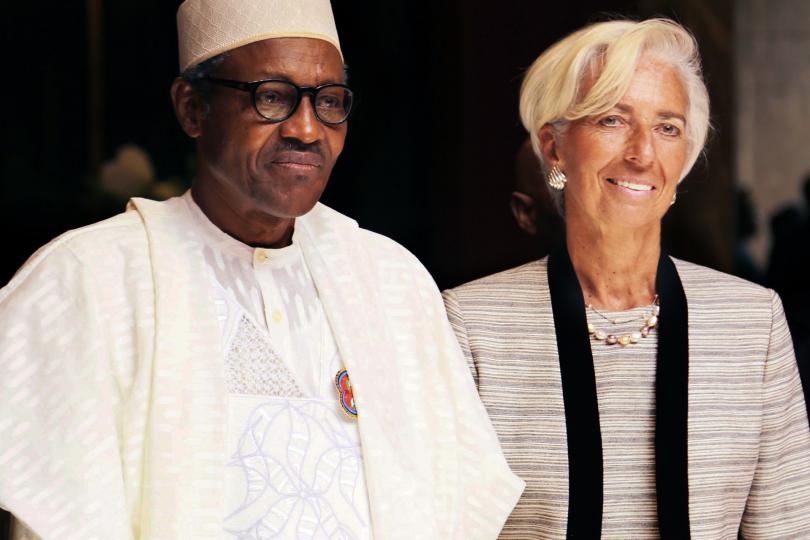The Managing Director, International Monetary Fund (IMF), Christine Lagarde, has asked the Federal Government to remove fuel subsidy, and redirect the funds to other essential sectors.
Lagarde was addressing newsmen at the on-going joint annual spring meetings with the World Bank in Washington DC, adding that, owing to the low revenue mobilisation that existed in Nigeria in terms of tax to Gross Domestic Product, fuel subsidy removal is the right thing to do.
In her view, this would enable Nigeria to move funds into improving health, education, and infrastructure.
When reminded that the removal of subsidy was a sensitive issue to Nigerians, many of who live below the poverty line, Lagarde insisted that the right thing to do was for Nigeria to embark on total fuel subsidy removal.
She said, “I will give you the general principle. For various reasons and as a general principle, we believe that removing fossil fuel subsidies is the right way to go. If you look at our numbers from 2015, it is no less than about $5.2tn that is spent on fuel subsidies and the consequences thereof. And the Fiscal Affairs Department has actually identified how much would have been saved fiscally but also in terms of human lives, if there had been the right price on carbon emission as of 2015. Numbers are quite staggering.
“I would add as a footnote as far as Nigeria is concerned that, with the low revenue mobilisation that exists in the country in terms of tax to GDP, Nigeria is amongst the lowest. A real effort has to be done in order to maintain a good public finance situation for the country. And in order to direct investment towards health, education, and infrastructure.”
The IMF boss added, “If that was to happen, then there would be more public spending available to build hospitals, to build roads, to build schools, and to support education and health for the people.
READ ALSO: Peaceful elections will bring meaningful development to Africa — Ex-President Jonathan
“Now, how this is done is the more complicated path because there has to be a social protection safety net that is in place, so that the most exposed in the population do not take the brunt of the removal of subsidies principle. So that is the position we take.”
Within the first eleven months of 2018, the Nigerian National Petroleum Corporation spent a total of N623.16bn on fuel subsidy under its under-recovery arrangement.
Despite repeated denials, documents presented to Federation Account Allocation Committee in December 2018, revealed that what the NNPC had incurred as under-recovery in 11 months was N623.16bn.
Lagarde also expressed concerns that 70 per cent of the global economy was decelerating and as such, the Bretton Wood institution had cut its forecast across the board.
She said, “But just like nature, the global economy is also currently quite uncertain. As I said a year ago, we were talking about synchronised growth. And 75 per cent of the global economy was going through that phase. As you heard a couple of days ago, we are now talking about a synchronised slowdown by 70 per cent of the global economy.
“So, our forecast for growth this year is 3.3 per cent, going back up, we hope in 2020 based on our forecast, to 3.6 per cent. But we contend that we are at a delicate moment and this expected rebound from 3.3 per cent in 2019 to 3.6 per cent in 2020 is precarious and subject to downside risks, ranging from unresolved trade tensions, yet high debt in some sectors and countries, both public and corporate, to the risk of weaker than expected growth in some stressed economies. And, of course, the consequences of whatever Brexit will be.”
In terms of policy recommendations, Lagarde suggested multiple policies that were country-specific, saying that there was no one size fits all.
“But we certainly would recommend two key principles. One is, do no harm. Second, do the right thing. So, do no harm. The key is to avoid the wrong policies, and this is especially the case for trade,” she added.




 Premier League
Premier League